Arts & Culture
 Judaica by Design
Judaica by DesignWednesday, February 17, 2010 | Jewish Ideas Daily » Daily Features
"Art for art's sake"—the idea that works of art must be judged solely on their own terms, apart from any considerations of moral, religious, or civic value—has by now become largely devoid of meaning, especially as so many artists openly hitch their work to one or another of today's political wagons. But with the lapsing of the polarities to which the phrase once gave rise, in particular those between art and religion, it has also become possible for newer generations of artists to turn their talents unapologetically to religious motifs. The results, as several recent exhibits suggest, are both intriguing and markedly uneven. Reinventing Ritual, a show from last fall at the...
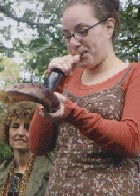 New Communities
New CommunitiesTuesday, February 16, 2010 | Jewish Ideas Daily » Daily Features
Recent years have seen a surge of new Jewish communities: experiments in communal living like Moishe House, urban kibbutzim in Israel's inner cities, back-to-nature programs combining organic farming, kashrut, and "eco-justice," and, perhaps most notably, independent minyanim in the U.S., Israel, and elsewhere. These last—communities focused principally or exclusively on prayer—shun not only the formality and organizational heft of most synagogues but also the labels and authority of denominational Judaism. Some of the most prominent have been created by Orthodox Jews seeking to make room for greater participation by women; others comprise young people experimenting with their own forms of...
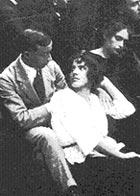 Eastern Europe
Eastern EuropeThe rediscovery—and recovery—of Eastern Europe are central elements in contemporary Jewish culture. Ultra-Orthodoxy tries to maintain versions of Eastern European dress, speech, and mores. The theology of Abraham Joshua Heschel, the melodies of Shlomo Carlebach, the sound of klezmer, the literary productions of authors as disparate as S.Y. Agnon and Jonathan Safran Foer: all in their distinct ways seek to find, in the murdered world of Eastern Europe, a source of living energy for the present. Not all succeed, and only the best display a grasp of the sheer complexity of the civilization they mean to retrieve and/or to reconstruct. In one impressive recent study, large swathes of...
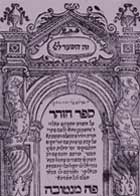 Fakes
FakesThursday, February 11, 2010 | Jewish Ideas Daily » Daily Features
The celebrated French intellectual Bernard-Henri Lévy had some explaining to do this week when it emerged that a philosopher he'd respectfully cited was a figment of somebody else's imagination. Jewish history boasts its own roster of hoaxes and fabrications. Most famously, the Zohar, purportedly the teaching of talmudic mystics, was largely written in the 13th century. Another product of the Middle Ages was a pseudo-talmudic text imposing extraordinary stringencies on menstruating women. In both cases, the authors clearly believed they were enunciating things that the ancients must have themselves believed. The authors of the Golem legend similarly believed that if Rabbi...
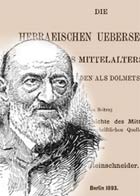 Master of the Book
Master of the BookTuesday, February 9, 2010 | Jewish Ideas Daily » Daily Features
"Of making many books there is no end." In the hands of the master bibliographer Moritz Steinschneider, a phenomenon that induced despair in the author of Ecclesiastes was converted into great science and even greater art. Steinschneider (1816–1907) lived through the 19th century and into the early decades of the 20th. One of the founders of the academic study of Judaism before there were typewriters, let alone departments of Jewish studies, he took upon himself the gargantuan task of cataloguing the vast numbers of Hebrew and Judaic treasures, in print and manuscript, scattered throughout state, municipal, and university libraries of Europe. His output was as staggering as it was painstakingly...
 China
ChinaMonday, February 8, 2010 | Jewish Ideas Daily » Daily Features
Quite apart from the implications of China's growing influence in the global economy, China's politics, both domestic and foreign, clash directly with Western concerns in areas from democracy to the rights of individuals and minorities to (especially when it comes to Iran's race to acquire nuclear weapons) the security of Europe and the Middle East. China is also interested in the Jews. It has had diplomatic relations with Israel since 1992, and Jerusalem has risked Washington's displeasure to maintain its military ties with Beijing. And China's interest extends beyond Israel, to Jewish civilization as a whole. Chinese scholars and academics seek to...
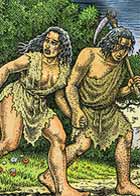 Talking Pictures
Talking PicturesFriday, February 5, 2010 | Jewish Ideas Daily » Daily Features
Ever since Art Spiegelman's landmark Maus (1986), comics and graphic novels have established themselves as a new form of visual-cum-verbal midrash. The best of them, re-imagining texts and the events of history, point beyond themselves. If Spiegelman paid tribute to his father, a survivor of the Holocaust, the hero of Joann Sfar's The Rabbi's Cat is witness to the vanished Jewish culture of Algiers. Other cartoonists have tackled the text of the Bible, as eloquent as it is famously laconic. R. Crumb (of Fritz the Cat) has recently published his take on the Book of Genesis, rendered in his trademark mix of burlesque, Blake, and...
 Tablets
TabletsWednesday, February 3, 2010 | Jewish Ideas Daily » Daily Features
A few days ago, Apple released yet another new device aimed at integrating words written, spoken, and seen, and freeing them from the limitations of time and space. It joins an array of other products making texts and audio-video materials available as never before. Is anything being lost here? The Talmud declares: "Written words should not be spoken, and spoken words should not be written." What the rabbis specifically sought to impress on Jewish minds was the difference between the Written Torah, fixed, immutable, divine, and the constantly accreting commentaries known as the Oral Torah, spontaneous, dynamic, human yet also somehow partaking of...
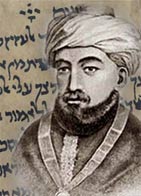 Mediterranean Maimonides
Mediterranean MaimonidesTuesday, January 26, 2010 | Jewish Ideas Daily » Daily Features
Civilizations come and go. Their greatest surviving creations remain. Such is the case with the work of Maimonides (1135–1204), a towering thinker, known to Jewish tradition as "the Great Eagle," who continues to defy easy characterization. Two new biographies depart from past treatments to situate the thought of this master philosopher within the Arabic civilization of his time, and more generally in the prism of the Mediterranean world. To the late scholar Shlomo Dov Goitein, the Mediterranean was a gracious, cross-cultural society that reached its apotheosis in the person of Maimonides' son Abraham, a Jewish devotee of Sufism. To Maimonides' more recent biographers, it...
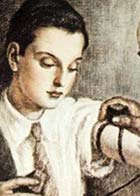 Tefillin
TefillinMonday, January 25, 2010 | Jewish Ideas Daily » Daily Features
"This refers to the tefillin worn on the head," commented a first-century sage on a verse in Deuteronomy (28:10): "And all the peoples of the earth will see that you are called by God's name, and they will fear you." Fear is right. Last Thursday, the sight of a mild-mannered student wearing tefillin for his morning prayers terrified a U.S. Airways crew into an emergency landing. Tefillin, or, in ungainly English, phylacteries, strike a primal chord in those who wear them as in those who see them, and with reason. Tefillin physically enact the biblical injunction to make the words of...
Editors' Picks
From Slovakia to Flatbush Binyamin Rose, Voz Iz Neias?. The busiest synagogue in Flatbush traces its roots to a bunker in rural Slovakia, where its founder, Yechezkel Shraga Landau, led a community in hiding during the war.
Teach Your Tongue to Say “I Don't Know” David Wolpe, Jewish Journal. When a nation struggles with the threat of being vaporized in a nuclear conflict, to call its policies on the West Bank and Gaza "the great question of the age" is myopic at best.
School Ties Jason Diamond, Tablet. The only thing hidden in the resurgence of the quintessentially WASPy American look is a sense of its Jewish roots.
Ways and Means Joseph Lowin, Hadassah. The root alef, resh, het, meaning to travel, is used in two important narratives in Genesis and still is encountered in modern Hebrew. Just don't try to give an orhit to an airport customs agent.
Through First-Century Eyes Amy-Jill Levine, Marc Brettler, Jewish Journal. We can learn much about Jewish life from the earliest texts of the rabbinic period: the Dead Sea Scrolls, Philo and Josephus, archeological material, and . . . the New Testament? (Interview by Shmuel Rosner)
America, Israel, and the Future of Liberal Democracy Leon Wieseltier, Yuval Levin, Tikvah Fund. Israel has a very different political tradition from the United States, yet both countries' systems are showing signs of strain. Does liberal democracy have a future? (Video)
An Invitation to Progressives Toby Greene, Alan Johnson, New Statesman. Beyond the frankly boring "debate," there is a better and more interesting conversation about Israel to be had: about the conditions, forms, and above all, futures of Israel's young democracy.
Another Trial for Shylock Stephen Marche, New York Times. Recent opposition to a London production of the Merchant of Venice in Hebrew shows that once again, Shylock has come to stand for the entire Jewish people.
A Mask for Janus Margalit Fox, New York Times. For a generation of Reform Jews, the commentary of the recently deceased W. Gunther Plaut heralded a return to Hebrew scripture. But it also made new interpretations permissible.
The Belated Contender Adam Kirsch, Tablet. It's more than a little revealing that Nathan Englander's stories of identity and belief seem shallow and garish, while his story of Jewish politics feels challenging and true.

